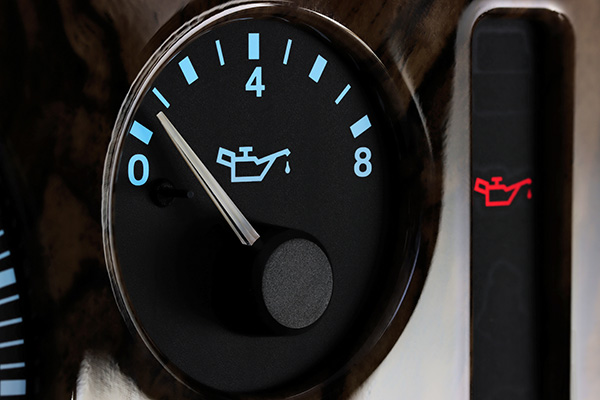
Your car’s oil pressure sensor is vital in keeping your engine running. This tiny sensor is responsible for monitoring the oil pressure in your engine and alerting you if it drops to dangerous levels. But what happens if the oil pressure sensor starts to fail and you ignore the warning signs? Well, it’s not something you want to take lightly. Ignoring a faulty oil pressure sensor can lead to significant engine damage, expensive repairs, and even a complete engine failure.
Let’s see why your oil pressure sensor is so crucial and the risks you take by overlooking a failing one.
What Does the Oil Pressure Sensor Do
Before we get into the dangers of ignoring a failing sensor, it’s essential to understand what this component actually does. The oil pressure sensor keeps track of your engine’s oil pressure and sends real-time information to the car’s control module. If the oil pressure drops below the recommended level, a warning light on your dashboard will turn on, letting you know there’s a problem that needs immediate attention.
Oil is vital to your engine’s performance because it lubricates moving parts, reduces friction, and prevents overheating. Without proper oil pressure, your engine could suffer from metal-on-metal contact, which leads to excessive wear and, eventually, serious damage.
Signs of a Failing Oil Pressure Sensor
How do you know if your oil pressure sensor is on the fritz? There are a few telltale signs that you should never ignore:
Intermittent Oil Pressure Warning Light
If your oil pressure light keeps flickering on and off, even when your oil levels are fine, this could be a clear indication that your oil pressure sensor is starting to fail.
Incorrect Oil Pressure Readings
Some vehicles display oil pressure levels on the dashboard. If the readings are unusually high or low without any other signs of oil trouble, the sensor might be faulty.
No Warning Light During Low Oil Pressure
A failing sensor might not trigger the oil pressure warning light when the oil pressure drops. This is a major problem because you won’t know your engine is in danger until it’s too late.
What Happens When You Ignore a Failing Oil Pressure Sensor
It might be tempting to shrug off these signs, especially if your car seems to be running fine. But ignoring a malfunctioning oil pressure sensor can lead to severe consequences. Here’s why it’s crucial to address the issue as soon as possible.
1. Engine Wear and Tear
The oil in your engine acts as a lubricant, ensuring that all the moving parts work together efficiently without causing friction. When your oil pressure is low, the engine's components will experience more friction, leading to quicker wear and tear. Over time, this friction can destroy vital engine components, leading to an engine rebuild or replacement—a costly repair you’d rather avoid.
2. Overheating
When your engine doesn’t get enough oil, it’s not just friction you have to worry about. The lack of proper lubrication will cause your engine to overheat. Engine overheating is dangerous and can cause major internal damage, like warping the cylinder heads or even cracking the engine block. By ignoring the early signs of a failing oil pressure sensor, you risk turning a minor issue into a major headache.
3. Complete Engine Failure
Perhaps the biggest danger of all is total engine failure. If you continue to drive with low oil pressure and a faulty sensor, your engine could seize up entirely. At this point, your car will no longer be drivable, and you’ll be looking at a major repair bill—or even the cost of a brand-new engine.
How to Prevent Oil Pressure Sensor Problems
The good news is that a failing oil pressure sensor is a relatively easy and inexpensive fix. Here’s what you can do to prevent oil pressure-related engine damage:
Regular Inspections
Make sure your car is regularly inspected by a professional who can catch any issues with your oil pressure sensor before they become serious.
Pay Attention to Warning Lights
Don’t ignore that oil pressure warning light on your dashboard. Even if your oil levels seem fine, it’s always better to have it checked out.
Monitor Oil Levels and Quality
Keep an eye on your oil levels and make sure you’re using the right type of oil for your car. Clean, high-quality oil is essential for maintaining proper oil pressure.
Don’t let a small sensor become a big problem! Schedule your inspection with DRIVE AutoCare today. We specialize in keeping your vehicle in top condition with our reliable maintenance services.